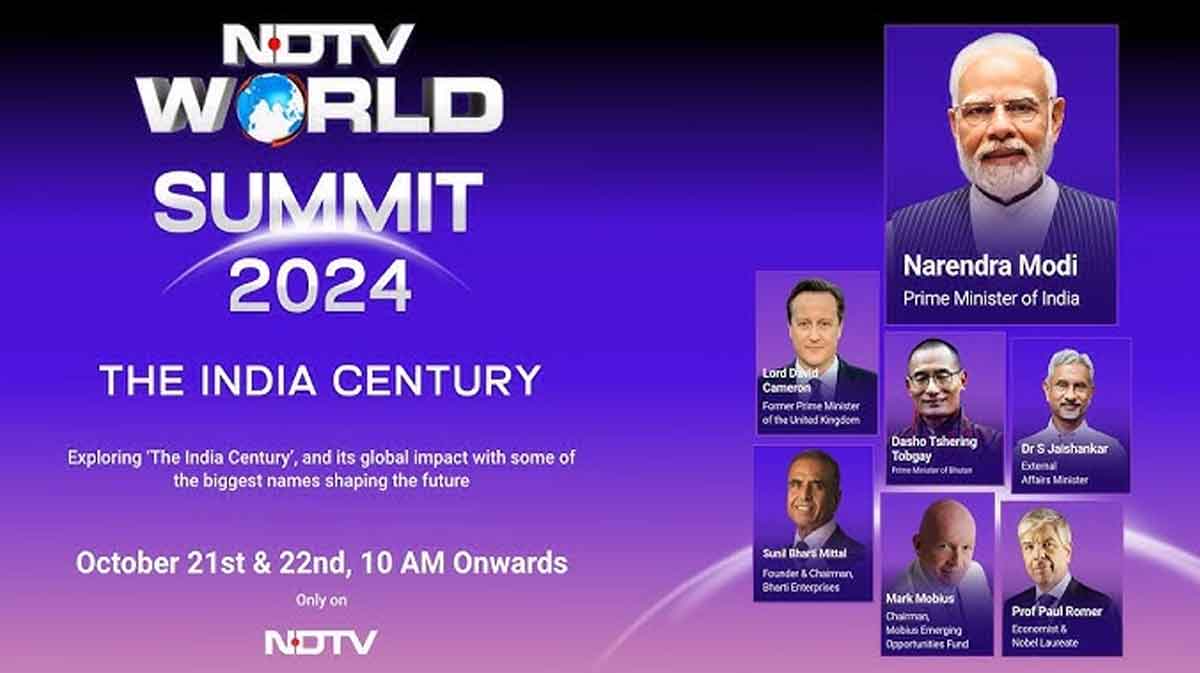India should hold a permanent seat on the United Nations Security Council (UNSC), former UK Prime Minister David Cameron emphasized at the NDTV World Summit. Speaking on Monday, Cameron argued that India’s perspective is crucial in addressing global challenges and praised the country’s contributions to economic growth, democracy, and environmental sustainability.
“The world needs India’s voice,” Cameron remarked, underscoring the nation’s rising influence in the global arena. His remarks followed Prime Minister Narendra Modi’s keynote speech, with Cameron commending Modi’s leadership and the continuity of his governance.
Praise for India’s Leadership and Economic Growth
Cameron expressed admiration for PM Modi’s ability to effect lasting change over his three terms in office. “It’s impressive because it means you have the ability to get real things done in a very consistent way,” Cameron said, noting the stark contrast with the UK’s recent political instability, where several prime ministers have taken office since his tenure ended.
He also spoke about the shifting global landscape and the need for institutional reforms that reflect this new reality. “The world has changed hugely since the institutions were established after World War II,” Cameron stated, advocating for India to take a central role in these reforms.
India’s potential to become the world’s largest economy in the coming decades, according to Cameron, makes it imperative for the nation to have a say in global decisions. “We need a reset, and countries like India should be at the heart of it,” he added.
India’s Right to a UNSC Permanent Seat
Cameron reiterated his long-standing support for India’s claim to a permanent seat on the UNSC, calling it a “right” in today’s transformed world order. Reflecting on his previous stance from 2015, he highlighted that he has long been an advocate for this reform.
“When I became leader of the Conservative Party, India was the first country I visited outside Europe. It was also the first country I visited after becoming prime minister in 2010. A permanent seat on the Security Council should be India’s right,” he emphasized.
Cameron acknowledged that such institutional changes take time, but noted India’s growing presence in influential groups such as the Quad and G20. He also pointed out that India’s regular invitations to attend G7 summits underline its increasing stature on the global stage.
Call for a Comprehensive Free Trade Agreement Between the UK and India
Discussing the much-anticipated Free Trade Agreement (FTA) between the UK and India, Cameron expressed disappointment over its delay. Former UK Prime Minister Boris Johnson had promised the deal by Diwali 2022, but negotiations remain ongoing.
“I think it hasn’t happened for a good reason. Both Britain and India understand that there is only one chance to make a good FTA, and it has to be a substantial one,” Cameron said. He urged both nations to take a few more risks and put more on the negotiating table to ensure a successful and comprehensive agreement.
He also highlighted the sectors where both countries stand to benefit, citing scotch whisky, IT workers, and increased Indian investment in the UK as key components of the deal. Cameron noted that India, in return, could benefit from the millions of jobs created by stronger trade ties. “It’s a win-win situation, but we should both take more political risks to make it happen,” he stressed.
The Importance of a High-Standard Deal for India’s Future
Cameron concluded by stressing that a successful FTA with the UK would set a precedent for India’s future negotiations with other global entities, particularly the European Union. “Making this deal as big and generous as possible is important not only for bilateral trade but also for India’s future trade relations with the EU,” he added.
In his wide-ranging address, Cameron lauded India’s contributions to global growth, emphasized its rightful place in international governance, and called for bold steps in trade and diplomacy to strengthen UK-India relations for the future.
(With inputs from agencies)





